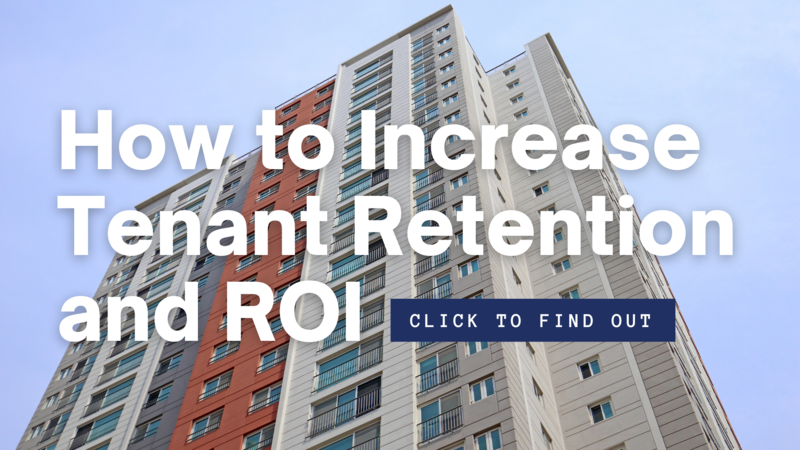

How to Increase Tenant Retention and ROI

There is a lost income during the time when your tenant leaves and on top of that you also have to pay your mortgage and pay utility bills. There are a few simple steps you can take to minimize turnover by keeping tenants more efficiently. Try these 8 simple tips and tactics to keep your tenants renewed year after year and avoid costly losses when it comes to turnover.
1. Strategic Rent Increases.
You really want to gradually increase your rent every year, It prevents your rent from falling far below market levels and when you raise rents to market levels. It also sets expectations, when you send a message to tenants and say that rents will be increasing every year, but by a fair and modest amount. It sets the stage for incentivizing long-term lease renewals. Consider this, the tenant can renew the subscription on a monthly basis for a higher rent increase. Or, for a lower amount, they can sign a one-year lease renewal. This creates a clear incentive for your tenants to stay with you for a long time!
2. Calling in Before Entering a Unit.
Give written notice 24 to 48 hours in advance, (depending on your state landlord laws), but you must also call before entering the tenant's home, as it is polite and shows respect for their privacy. For you, rental space is part of your business, and you own it, it is an asset, but for your tenants, this is their home. So even in emergencies where you are not legally required to give written notice, call the tenants anyway. Privacy really matters and a phone call in front of you only costs two minutes but makes it clear to your tenants that you respect their privacy and they will appreciate it a lot.
3. “Friends-to-Neighbors."
If you run an apartment building or have multiple single-family homes in the same area, consider the "Friends to Neighbors" program. Your tenants would like their families to become their neighbors for their own close community. You can offer a discount on the first month's rent to your friends who are moving to one of your hotels, but don't offer tenants money, offer their friends a discount. So once a resident's friends move into the community, both sides are far less likely to leave.
4. Screen Applicants Aggressively.
A good tenant relationship won't help if you're renting out to people who don't pay rent. That's why you need to create eviction reports, tenant credit reports, and background checks on all applicants, make sure to call employers, current and previous landlords, and create a system for comprehensive analysis of all rental applications. But tenant screening doesn't end with identifying tenants who may need to be evicted, as you also want to weed out people who live somewhere for a year and then leave, so take a close look at the housing history of all applicants and only rent out to people who have lived in the same location for years.
5. Stay Up to Date on Your Market.
How do your rental properties compare to competitors? Price? Amenities? If you charge more than your competitors, there must be a good reason. Maybe you have improved amenities, more space, more modern equipment. If not, you might lose good tenants in front of your competitors on the street. So go through the vacant properties near yours, get an understanding of them and try to see them through the eyes of a renter in your area. Also, interview outgoing tenants. Why did they decide to move? Where are they moving to? Are there any changes that would convince them to stay? Do whatever it takes to find out what drives tenants in your market.
6. Make Responsiveness a Priority.
When tenants call you about necessary repairs, jump on it quick, it will save you money, as the longer, the property problem persists, the more damage it causes. It also shows that you care about the property and care about the problems of the tenants. Make sure to call them every day or two, even if you have no news to report, just to check and let them know you are working on it. Stay on top of renovations and stay in touch with your tenants.
7. Send Holiday Cards to Good Renters.
If you know their religion, send a religion card, as it's more personal than your regular holiday card. But a regular postcard is better than none if you don't know what holiday is being celebrated. You can also add a small gift card to a popular retailer like Amazon or Best Buy. Send the card to each family member by name, including children. This makes the card more personal.
8. Get Rid of Bad Tenants.
What to do with bad tenants? Get rid of them. Bad tenants cost you money and will make your good tenants leave. And then it doesn't matter how good you are at all of the above, your good tenants will leave anyway to get rid of noisy, shady neighbors. It doesn't matter if your bad tenants are paying their rent on time every month, if you receive multiple complaints about them or they are mistreating your property, send non-renewal notices well in advance of extending their lease. The calculation is simple: keep your good tenants, don't renew bad tenants, and you get a high ROI, low costs, and low maintenance property management.




Comments